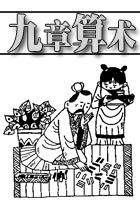'It is hardly an engagement; and we all pledged ourselves to keep it a secret, mamma among the rest!' 'But, my dearest Cynthia, you could not expect - you could not have wished me to keep a secret from my husband?' pleaded Mrs Gibson.'No, perhaps not.At any rate, sir,' said Cynthia, turning towards him with graceful frankness, 'I am glad you should know it.You have always been a most kind friend to me, and I daresay I should have told you myself, but I did not want it named; if you please, it must still be a secret.
In fact, it is hardly an engagement - he' (she blushed and sparkled a little at the euphuism, which implied that there was but one 'he' present in her thoughts at the moment) 'would not allow me to bind myself by any promise until his return!' Mr Gibson looked gravely at her, irresponsive to her winning looks, which at the moment reminded him too forcibly of her mother's ways.Then he took her hand, and said, seriously enough, - 'I hope you are worthy of him, Cynthia, for you have indeed drawn a prize.
I have never known a truer or warmer heart than Roger's; and I have known him boy and man.' Molly felt as if she could have thanked her father aloud for this testimony to the value of him who was gone away.But Cynthia pouted a little before she smiled up in his face.'You are not complimentary, are you, Mr Gibson?' said she.'He thinks me worthy, I suppose; and if you have so high an opinion of him, you ought to respect his judgment of me.' If she hoped to provoke a compliment, she was disappointed, for Mr Gibson let go of her hand in an absent manner, and sate down in an easy chair by the fire, gazing at the wood embers as if hoping to read the future in them.Molly saw Cynthia's eyes fill with tears, and followed her to the other end of the room, where she had gone to seek some working materials.'Dear Cynthia,' was all she said; but she pressed her hand while trying to assist in the search.'Oh, Molly, I am so fond of your father; what makes him speak so to me to-night?' 'I don't know,' said Molly; 'perhaps he's tired.' They were recalled from further conversation by Mr Gibson.He had roused himself from his reverie, and was now addressing Cynthia.'I hope you will not consider it a breach of confidence, Cynthia, but Imust tell the squire of - of what has taken place to-day between you and his son.I have bound myself by a promise to him.He was afraid - it's as well to tell you the truth - he was afraid' (an emphasis on this last word) 'of something of this kind between his sons and one of you two girls.
It was only the other day I assured him there was nothing of the kind on foot; and I told him then I would inform him at once if I saw any symptoms.' Cynthia looked extremely annoyed.'It was the one thing I stipulated for - secrecy.' 'But why?' said Mr Gibson.'I can understand your not wishing to have it made public under the present circumstances.But the nearest friends on both sides! Surely you can have no objection to that?' 'Yes, I have,' said Cynthia; 'I would not have had any one know if I could have helped it.' 'I am almost certain Roger will tell his father.' 'No, he won't,' said Cynthia; 'I made him promise, and I think he is one to respect a promise' - with a glance at her mother, who, feeling herself in disgrace with both husband and child, was keeping a judicious silence.'Well, at any rate, the story would come with so much better a grace from him that I shall give him the chance; I won't go over to the Hall till the end of the week; he may have written and told his father before then.' Cynthia held her tongue for a little while.Then she said, with tearful pettishness, - 'A man's promise is to override a woman's wish then, is it?' 'I don't see any reason why it should not.' 'Will you trust in my reasons when I tell you it will cause me a great deal of distress if it gets known?' She said this in so pleading a voice, that if Mr Gibson had not been thoroughly displeased and annoyed by his previous conversation with her mother, he must have yielded to her.As it was, he said coldly, - 'Telling Roger's father is not making it public.
I don't like this exaggerated desire for such secrecy, Cynthia.It seems to me as if something more than was apparent was concealed behind it.' 'Come, Molly,' said Cynthia, suddenly; 'let us sing that duet I've been teaching you; it's better than talking as we are doing.' It was a little lively French duet.Molly sang it carelessly, with heaviness at her heart; but Cynthia sang it with spirit and apparent merriment; only she broke down in hysterics at last, and flew upstairs to her own room.
Molly, heeding nothing else - neither her father nor Mrs Gibson's words - followed her, and found the door of her bedroom locked, and for all reply to her entreaties to be allowed to come in, she heard Cynthia sobbing and crying.It was more than a week after the incidents last recorded before Mr Gibson found himself at liberty to call on the squire; and he heartily hoped that long before then, Roger's letter might have arrived from Paris, telling his father the whole story.But he saw at the first glance that the squire had heard nothing unusual to disturb his equanimity.He was looking better than he had done for months past; the light of hope was in his eyes, his face seemed of a healthy ruddy colour, gained partly by his resumption of out-of-door employment in the superintendence of the works, and partly because the happiness he had lately had through Roger's means, caused his blood to flow with regular vigour.He had felt Roger's going away, it is true; but whenever the sorrow of parting with him pressed too heavily upon him, he filled his pipe, and smoked it out over a long, slow, deliberate reperusal of Lord Hollingford's letter, every word of which he knew by heart; but expressions in which he made a pretence to himself of doubting, that he might have an excuse for looking at his son's praises once again.














